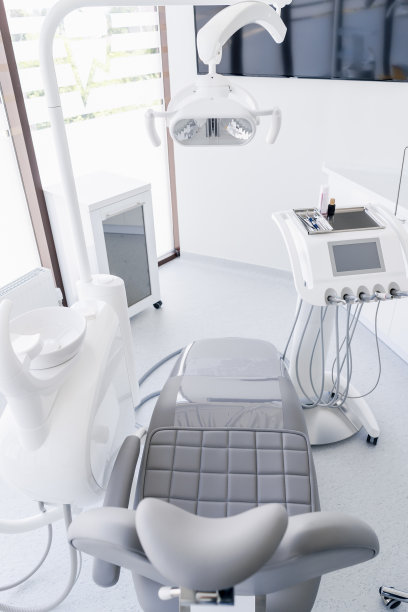Summary: Periodontal disease is a prevalent oral health condition characterized by inflammation and infection of the supporting structures of the teeth. This article explores the various causes of periodontal disease, including poor oral hygiene, genetic factors, and lifestyle choices. It also highlights the significant impact periodontal disease can have on overall health, linking it to conditions such as heart disease and diabetes. Furthermore, we delve into effective prevention strategies that involve good hygiene practices, regular dental visits, and lifestyle modifications to promote a healthier smile. Understanding these key aspects will empower individuals to take proactive steps in maintaining their gum health and overall well-being.
1. Key Causes of Periodontal Disease

Periodontal disease primarily stems from plaque buildup, a sticky film of bacteria that forms on teeth. When not adequately removed through brushing and flossing, plaque can harden into tartar, leading to gum inflammation known as gingivitis. If left untreated, this condition can progress to more severe periodontal disease, resulting in the destruction of gum tissue and bone.
Genetics plays a crucial role in an individuals susceptibility to periodontal disease. Some people may inherit a genetic predisposition that weakens their immune response to bacteria in the mouth, making them more vulnerable to infections. This aspect highlights the importance of understanding ones family history and taking preventive measures accordingly.
Lifestyle choices such as smoking, poor nutrition, and stress can also contribute significantly to the development of periodontal disease. Smoking not only impairs blood flow to the gums but also reduces their ability to heal. A diet lacking essential nutrients can weaken gum health, while stress can lead to hormonal fluctuations that affect the immune system. Recognizing these factors can inspire individuals to make healthier choices for their oral health.
2. Impact on Overall Health
The consequences of periodontal disease extend beyond the mouth, with research linking it to various systemic health issues. Studies have shown that individuals with periodontal disease are at a higher risk for cardiovascular diseases, as the inflammation caused by gum disease can contribute to the buildup of plaque in arteries.
Moreover, there is a significant correlation between periodontal disease and diabetes. Uncontrolled diabetes can make individuals more susceptible to gum infections, while periodontal infections can make it challenging to control blood sugar levels. This bidirectional relationship emphasizes the importance of maintaining gum health for those with diabetes and vice versa.
Additionally, periodontal disease has been associated with respiratory diseases. The bacteria involved in gum infections can enter the lungs, leading to respiratory conditions, especially in individuals with pre-existing health issues. Understanding these connections can motivate individuals to prioritize their dental health as part of their overall wellness strategy.
3. Effective Prevention Strategies
Preventing periodontal disease requires a multifaceted approach focused on good oral hygiene practices. Daily brushing with fluoride toothpaste and regular flossing are essential steps in removing plaque and preventing tartar buildup. It is recommended to brush at least twice a day and floss daily to maintain optimal gum health.
Regular dental check-ups play a crucial role in prevention. Professional cleanings can remove tartar that cannot be managed at home, while dental professionals can monitor gum health and provide tailored advice. Most dental experts recommend visiting the dentist every six months, but individuals with a history of gum issues may need more frequent visits.
Incorporating a balanced diet rich in vitamins and minerals also supports gum health. Foods high in antioxidants, like fruits and vegetables, can combat inflammation and strengthen the immune system. Additionally, staying hydrated helps maintain saliva flow, which is vital for naturally cleansing the mouth of bacteria. Educating oneself on nutrition can empower individuals to make healthier dietary choices that benefit not just their gums but overall health as well.
4. The Importance of Awareness and Action
Awareness of periodontal disease and its potential risks is the first step towards prevention. Understanding the symptoms, which may include swollen gums, persistent bad breath, or bleeding during brushing, can lead to early intervention and treatment. Recognizing these signs fosters a proactive approach to oral health.
Community initiatives and resources that provide education about oral care can aid in increasing awareness and inspire individuals to prioritize their gum health. Engaging in local oral health campaigns or programs can create a supportive environment for individuals seeking to improve their health.
Ultimately, taking action is crucial for the prevention of periodontal disease. By implementing effective prevention strategies, individuals can reduce the risk of developing this condition and promote a brighter, healthier smile. Empowerment through education and proactive measures is essential for long-lasting oral and overall health.
Summary: Understanding the causes, impacts, and prevention strategies of periodontal disease is vital for maintaining not just oral health but overall wellness. With a focus on good hygiene, a balanced diet, and regular dental visits, individuals can take control of their gum health and reduce the risks associated with periodontal disease.
This article is compiled by Vickong Dental and the content is for reference only.
Vickong Dental
Vickong Dental is a large medical group established in Hong Kong in 2008 by professors from well-known medical universities in Guangdong and Hong Kong, as well as medical doctors from key national '985' universities (including Master's supervisors and senior professors). The chain of branches brings together expert dentists with PhDs and Master's degrees from Hong Kong and Mainland China, committed to providing high-quality dental treatment.
"Vickong Dental Practices the University Motto of 'Healing and Serving Society,' with a Stable Operation for Sixteen Years. It Has Been honored with Hong Kong Enterprise Leaders's Choice,' and is a Global Trusted Implant Center for the Nobel Implant System. Recommended by Hong Kong Metro Broadcast and Guangdong Television, it Serves Customers from Over Thirty Countries and Regions, Gaining the Trust and Favor of Citizens from the Guangdong-Hong Kong-Macau Greater Bay Area and Surrounding Cities.

Thousands of customers' unanimous praise
The most recognized and highly recommended dental service by customers in the Guangdong-Hong Kong-Macau Greater Bay Area
We Ensure You Receive Detailed Care and Attention Here
Hong Kong standards, Shenzhen prices, Your Trusted English-speaking dentists

Vickong Dental Medical-Grade Instrument Disinfection Process
Vickong Dental Medical-Grade Instrument Disinfection Process

Vickong Dental Chain: A Warm and Comfortable Environment for Treatment






Appointment Hours

Q&A
Why choose Vickong Dental?
Vickong Dental practices the university motto 「Medicine to Benefit Society」, with each branch bringing together highly qualified dentists with doctoral and master’s degrees from Hong Kong and the Mainland, and has maintained seventeen years of steady operation。Recipient of 「2024 Hong Kong Enterprise Leaders Brand」, 「2025 Hong Kong Enterprise Leaders Brand」, a Nobel Biocare Global Trusted Implant Center, and a brand recommended by Metro Radio Hong Kong and Guangdong TV。
To date, we have served customers from more than thirty countries and regions,earning exceptionally high word-of-mouth recognition and trusted recommendations from residents across the Guangdong-Hong Kong-Macao Greater Bay Area and surrounding cities
We have eight major branches in Zhuhai、Shenzhen,and a consultation and service assurance center in Hong Kong,so you can book a free consultation at any time for any questions,which is very reassuring.
If I do not accept the quotation after the CT scan, will I be charged??
No! As long as the actual treatment has not started, you will not be charged any fees.
Will there be any additional charges during the treatment process?
No, there won’t be any additional charges. Before treatment begins, we will clearly explain the treatment plan and its corresponding fees. Only after the patient agrees and signs the consent form will we proceed with the dental service.
Can I pay in Hong Kong dollars?
Yes. Vickong Dental accepts payment in Hong Kong dollars. The amount will be converted based on the exchange rate of the day, and the applicable rate will be clearly communicated to you in advance.
Can I reschedule my appointment at any time?
Yes. Please contact us via **WeChat** or **WhatsApp** as early as possible, providing your original appointment time and details, along with your preferred new date and time slot for rescheduling.













